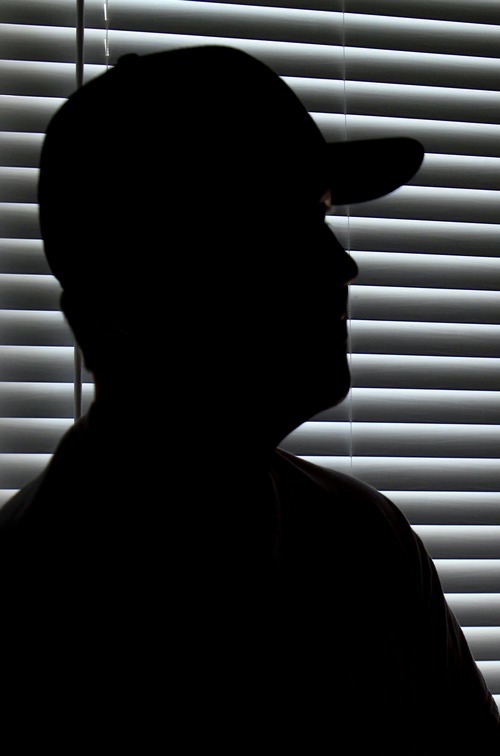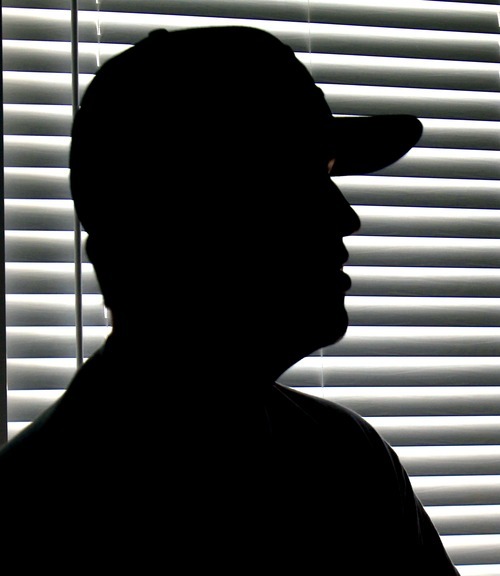This is an archived article that was published on sltrib.com in 2011, and information in the article may be outdated. It is provided only for personal research purposes and may not be reprinted.
Like many other moms, Kathy was excited when her son started to play football in Davis County, and she volunteered to be a parent helper for his youth league.
Kathy had to submit to a routine background check performed by a private company in Midvale. When the check revealed she had been convicted of check forgery 10 years earlier, Kathy was stunned — but not because she didn't commit the crime. She did.
No one was supposed to know about her conviction — Kathy had expunged her criminal record so the mistake she made would not continue to haunt her.
"I was mad because I had been told it had been taken care of," said Kathy, a pseudonym for the woman, whom The Salt Lake Tribune has agreed not to name. "I was sick to my stomach, and you feel ashamed."
Some of Utah's reformed criminals are discovering expungements are not the clean slate they were expecting. The problem can be traced to the Digital Age and the proliferation of private companies offering background checks.
The private firms use data downloaded from courts and the prison system. But whereas court-ordered expungements are effective at sealing government records of someone's conviction from the general public, private record-holders are under no obligation to eliminate such information.
It's unclear how many expunged convicts, in Utah or elsewhere, are caught by the private firms. Jon Syrett, of the Spectrum Security Group in Midvale that found Kathy's conviction, says that was only the third time in five years he was able to find an expunged record in his database.
But the problem seems likely to strike more Utahns given the state has seen the number of expungement seekers increase from 337 in fiscal year 1998 to 1,952 in 2010.
Michael Holje is a criminal defense attorney in Salt Lake City, but he spends a lot of time helping clients who are done with the courtroom. Holje said expungements have become a standard part of criminal defense practices in Utah.
"Even if they're acquitted at a jury trial, there's still an arrest record to expunge," Holje said. "Even an arrest record can raise a lot of eyebrows when you're applying for a job."
Holje has helped seal the records of pilots, doctors and fellow lawyers, but many of his clients are average working people wanting a job at grocery or department stores. If a potential employer asks an applicant to go to the state of Utah or a local police department and provide proof of a background check, an expunged record shouldn't turn up. The Utah State Courts website even advises expungement recipients they can answer "no" when asked if they have ever been arrested or convicted.
But Holje says most of his expungement clients apply for jobs at companies that use private background search firms. Intermountain Health Care, for example, requires applicants to submit to a background check through the California-based firm Hire Right. A spokeswoman for Target department stores also said the retailer uses a third-party vendor. She declined to say which one.
Holje has had clients tell him they suspect, but can offer no proof, they were turned down for jobs because they failed that background check. The quandary has left Holje not knowing how to advise his clients.
"They walk out of my office with all the confidence in the world thinking, 'After seven years my record has been expunged' only to have some database reveal their deep, dark secret," Holje said.
Advancement in computing power over the past 30 years has encouraged government agencies to store more information electronically and driven an industry that gathers that information and disseminates it to the public.
The Utah Department of Corrections became so worried about expunged records still being available, it ended its practice of selling an offender database three years ago, said Corrections spokesman Steve Gehkre. But the U.S. court system has always had a presumption of openness, and Utah courts continue to provide data.
In response to requests from The Salt Lake Tribune, administrators from the Utah State Courts provided the newspaper with a list of people and companies who have purchased data from it in the past two years. The list runs 51/2 pages and includes multiple purchases by The Tribune, which operates a public-data website called Utahsright.com.
Individuals sometimes contact Utahsright.com asking that their name be removed from the criminal records because they have received an expungement, said Eric Watson, database coordinator for Utahsright.com. It's the website's policy to honor such requests upon verification of the expungement.
Watson shared a list of such removed individuals with Tribune reporters who then entered the names into a subscription public-records service operated by LexisNexis. Of 30 people who said they received an expungement, five still had criminal records that appeared on LexisNexis. One of those five was Mark. In 2000, Mark was convicted of a felony assault charge for a fight during a concert at the Utah State Fairgrounds. He has since owned his own business and worked in food service because neither required passing a background check. Now in his early 30s, Mark, who asked his last name not be published, would like to go into social work or banking.
The state of Utah has granted Mark's request to expunge his record, but Mark wonders how to answer the inevitable application question about whether he has been convicted of a crime.
"I don't think it's fair that people can still find [the conviction] because I did what I was supposed to do," Mark said.
Not everyone opposes being able to look up an expunged record. Paul Cassell, a former federal judge in Utah and victims' rights advocate, said the rules of an expungement should not apply to a privately operated database nor should government force people to forget the past.
"Private businesses might say, 'Well, even though the case was more than 10 years old, I still have concerns about hiring the person,'" Cassell said.
But ensuring expunged records are truly expunged has support from an unlikely group: the private firms that supply background checks.
Chris Lemens, the general counsel for the Dallas-based backgroundchecks.com, says his company has found that clients have no interest in worrying about crimes that have been expunged, so neither does backgroundchecks.com.
"We only want to have good data in it," Lemens said. "An expunged record is basically junk data."
Lemens said there are only about six or seven firms that actually compile criminal-record databases. However, backgroundchecks.com sells its database of 400 million records to "hundreds" of other search firms, including its direct competitors, Lemens said.
Backgroundchecks.com compiles that database by taking data from state court and prison systems across the country. Some states provide the company with an amended data file that replaces the one it earlier gave the company, meaning backgroundchecks.com can just delete the previous file. That would eliminate expunged records from the company's database, Lemens said.
But some states provide only an update of their newest court or criminal records, Lemens said, and that leaves companies like his with no way to know who has received an expungement. Watson said Utah State Courts provide an amended data file that eliminates the expunged records in the Beehive State.
Syrett, of the Spectrum Security Group, said his company is one of those that buys its data from another company. Syrett agrees expunged data should not be found in background searches, and he puts the problem on the shoulders of state agencies who originally provide the data.
"It's going to come down to the people in the courts getting the information out," Syrett said. "That's where the problem lies."
Lemens said the private background-check industry is addressing the issue of expungements. His company and some competitors have announced the creation of the National Expungement Clearinghouse. When it is operational, the clearinghouse would allow someone with an expungement to send proof there. The clearinghouse would then forward that information to its members, who would erase the record, Lemens said. He hopes the clearinghouse will be operational by the end of the summer.
For now, anyone wanting their expunged record removed from a private database needs to send a request and proof of the expungement to each data company and hope they comply.
Syrett, at least, was understanding when they found Kathy's conviction.
As it happened, Kathy called Syrett's company to inquire about the status of her background check before the company informed the league of the forgery conviction. When Syrett informed her she failed, Kathy supplied proof of the expungement. Syrett did not report the conviction to the league.
Kathy sees the expungement as a chance to move forward.
"When you're told it's over, it should be over," Kathy said.
Utah State University student Arianna Rees contributed research to this report.
ncarlisle@sltrib.comTwitter: @natecarlisle —
Seeking an expungement in Utah
The following crimes can never be expunged: capital felony, first-degree felonies, violent felonies, automobile homicide, felony driving under the influence or a registerable sex offense.
For other offenses, and if your sentence is complete, you may seek an expungement so many years after the conviction based on the level or type of offense:
DUI • 10 years*
Second- or third-degree felonies • 7 years
Class A misdemeanor • 5 years
Class B misdemeanor • 4 years
Other misdemeanors or infractions • 3 years
Other rules
You cannot have other criminal cases pending.
You are ineligible for an expungement if you have been convicted of two separate felonies, three separate class A misdemeanors, four separate class B misdemeanors or five separate offenses total.
* Any DUI conviction requires a 10-year wait for an expungement regardless of the offense level.
Source: Utah State Courts —
What if you weren't convicted?
Your arrest and jail booking information can be expunged if 30 days have passed since the arrest, no criminal cases are pending and one of the following occurred:
No charges were filed.
The court case was dismissed with prejudice.
The person was acquitted at trial.
The statute of limitations has expired.
Source: Utah State Courts —
How to tell a private company to expunge your record
There are many background-search firms. It may be impossible to reach them all or they may not honor a request to delete an expunged record if they have it.
But you can be proactive — here are a few places to contact. Provide them with as much information as possible about you and your conviction.
Backgroundchecks.com • fax 866-306-9258
Spectrum Security Group • Contact it through http://www.spectrumsg.com.
Utahsright.com • Email webmaster@utahsright.com















